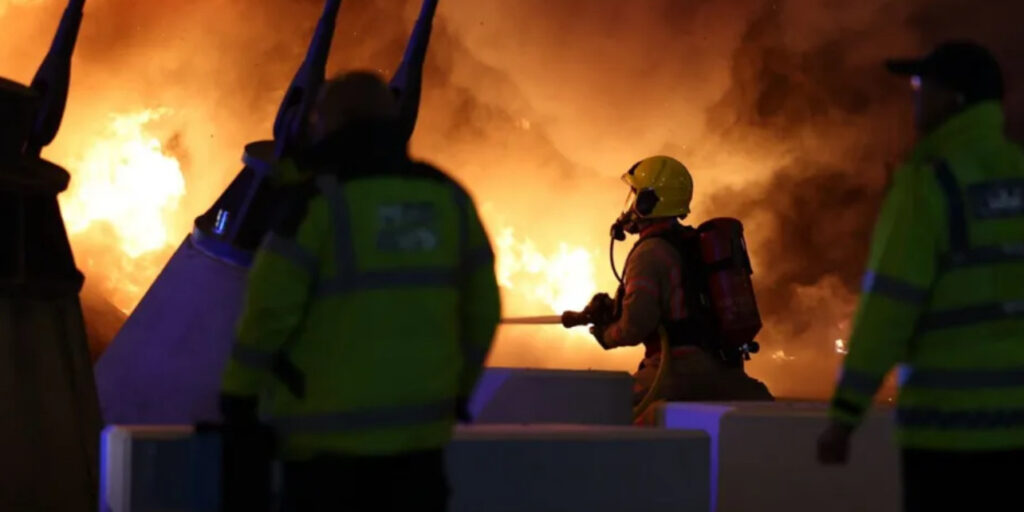Fire services across England are facing a significant funding shortfall, receiving just half the government support provided to police forces to cover the recent rise in National Insurance contributions (NICs).
This financial strain raises concerns over the ability of fire and rescue services to maintain essential operations and safety standards.
Following the Chancellor’s Budget announcement, employer NICs increased from 13.8% to 15%. While police forces have received an additional £230 million from the government to fully cover this cost, fire services have only been compensated for around 50% of their increased wage bills on average.
According to analysis, the shortfall is equivalent in some cases to the running cost of a fully staffed fire engine.
The discrepancy affects the 31 fire authorities directly funded by the government. Despite the provision of £502 million in top-up grants for councils and fire authorities, the National Fire Chiefs Council (NFCC) estimates that fire services still face a £20 million deficit out of the £40 million needed.
Data compiled from 43 fire authorities by the BBC shows that the average funding shortfall is around 50%. Some areas, like West Yorkshire and Humberside, face even greater gaps—67% and 60% respectively—while Essex sees the lowest shortfall at 17%.
The government has defended its overall funding support for local services, but fire sector leaders argue that the response fails to ensure parity between emergency services.
While the Home Office has acknowledged the £40 million cost of the NICs rise for all fire services, no additional plans have been announced to close the gap.
Fire authorities operate under a complex system with different funding models. Of the 31 receiving direct government grants, five are led by metro mayors, while the remaining 26 are combined fire authorities, five of which also fall under Police, Fire and Crime Commissioners (PFCCs).
An additional 10 fire services are managed by county councils, where NICs funding is pooled with broader council staff budgets, making the fire-specific impact less transparent.
Greater Manchester Fire and Rescue Service has reported a likely 50% funding shortfall, while the Mayor of London had to provide an extra £2.5 million to help offset a £4.4 million deficit in the capital.
Union representatives warn that this funding gap follows over a decade of underinvestment in fire services. Without full coverage of the NICs increase, many fear the cuts will impact fire engine availability, staff retention, and the overall safety of communities.
Sector leaders continue to call for fair and full funding to ensure fire services can meet rising costs without compromising their ability to respond to emergencies or support public safety across the country.


